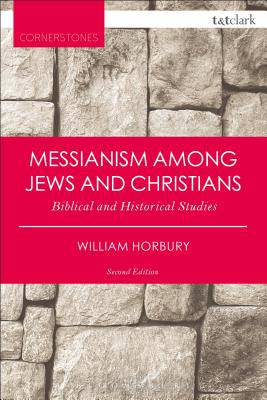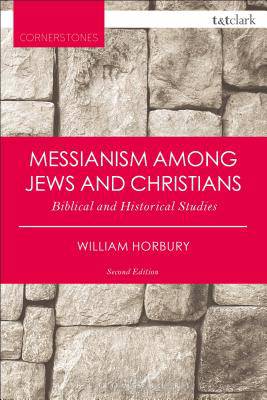
- Afhalen na 1 uur in een winkel met voorraad
- Gratis thuislevering in België vanaf € 30
- Ruim aanbod met 7 miljoen producten
- Afhalen na 1 uur in een winkel met voorraad
- Gratis thuislevering in België vanaf € 30
- Ruim aanbod met 7 miljoen producten
Zoeken
€ 83,45
+ 166 punten
Omschrijving
William Horbury considers the issue of messianism as it arises in Jewish and Christian tradition. Whilst Horbury's primary focus is the Herodian period and the New Testament, he presents a broader historical trajectory, looking back to the Apocrypha and pseudepigrapha, and onward to Judaism and Christianity in the Roman empire. Within this framework Horbury treats such central themes as messianism in the Apocrypha and pseudepigrapha, the Son of man and Pauline hopes for a new Jerusalem, and Jewish and Christian messianism in the second century.
Neglected topics are also given due consideration, including suffering and messianism in synagogue poetry, and the relation of Christian and Jewish messianism with conceptions of the church and of antichrist and with the cult of Christ and of the saints. Throughout, Horbury sets messianism in a broader religious and political context and explores its setting in religion and in the conflict of political theories. This new edition features a new extended introduction which updates and resituates the volume within the context of current scholarship.
Neglected topics are also given due consideration, including suffering and messianism in synagogue poetry, and the relation of Christian and Jewish messianism with conceptions of the church and of antichrist and with the cult of Christ and of the saints. Throughout, Horbury sets messianism in a broader religious and political context and explores its setting in religion and in the conflict of political theories. This new edition features a new extended introduction which updates and resituates the volume within the context of current scholarship.
Specificaties
Betrokkenen
- Auteur(s):
- Uitgeverij:
Inhoud
- Aantal bladzijden:
- 480
- Taal:
- Engels
- Reeks:
Eigenschappen
- Productcode (EAN):
- 9780567662743
- Verschijningsdatum:
- 24/03/2016
- Uitvoering:
- Paperback
- Formaat:
- Trade paperback (VS)
- Afmetingen:
- 155 mm x 231 mm
- Gewicht:
- 929 g

Alleen bij Standaard Boekhandel
+ 166 punten op je klantenkaart van Standaard Boekhandel
Beoordelingen
We publiceren alleen reviews die voldoen aan de voorwaarden voor reviews. Bekijk onze voorwaarden voor reviews.








